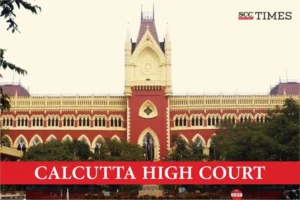Calcutta High Court: In a writ petition filed by a married couple aged around 59 (husband) and 46 (wife) aspiring to conceive through assisted reproductive technology under the Assisted Reproductive Technology (Regulation) Act, 2021 (‘2021 Act’), the Single Bench of Sabyasachi Bhattacharyya, J., observed that despite limitations barring the husband’s direct involvement due to age constraints outlined in the Act, the Court classified the couple as a ‘commissioning couple’, enabling them to seek assistance under the Act, as the practical implementation would focus on the wife, who met the age requirements and would actively participate in the process using third-party donors’ sperm and oocytes.
Background
The petitioners lost their only child at the age of 19. Desiring to fill the void left by their loss, they sought to conceive again but failed naturally due to medical reasons. They approached a licensed clinic for assisted reproductive technology, however, the medical examination revealed the wife was fit for IVF with ovum donation due to poor ovarian reserve and adenomyosis fibroid. However, they were informed that the husband’s age (over 55) posed a legal issue regarding their use of assisted reproductive technology under the Act, therefore, the petitioners filed the present writ petition asserting their right to parenthood under the Act.
Decision and Analysis
The Court carefully examined the provisions of the Act, including the Act’s definitions, age restrictions, and the rights of individuals and couples seeking assisted reproductive technology services, to determine the eligibility of the petitioners.
The Court conducted a detailed analysis of the Act’s definitions, particularly those of crucial terms such as “embryo” and “gamete”. Sections 2(1)(f) and 2(1)(g) were pertinent in this regard. It emphasized the Act’s inclusive framework, which extended beyond biological constraints and encompassed principles of equality and non-discrimination.
The Court noted that while the husband exceeds the age limit for gamete donation, the wife, petitioner no. 2, falls within the acceptable age range. This observation was made considering their status as an infertile married couple, as defined by Section 2(1)(e) of the 2021 Act. The Court elucidated its findings, stating, “The Act does not discriminate between women who are married and those who are not; such distinction cannot be made in the present case as well.”
The Court further highlighted the definition of “commissioning couple” under the Act, which encompasses married couples seeking assisted reproductive technology services, thus confirming the petitioners’ eligibility.
The Court further referring to the Act’s definition of “woman”, emphasized that it included any woman above 21 years seeking assisted reproductive technology services, and this provision ensures equal treatment for both individual women and those within a commissioning couple, as stipulated in Section 21(g).
Given these considerations, the Court recognized the petitioners’ intention to utilize third-party sperm and oocyte donors, effectively circumventing the age restrictions imposed on the husband and wife individually. The active participation of the wife, in the process was duly acknowledged.
In light of the above analysis, the Court concluded that the petitioners squarely fall within the purview of the Act, with no impediments barring them from seeking assisted reproductive technology services, even as a commissioning couple.
Consequently, the Court granted the petitioners permission to approach an Assisted Reproductive Technology Clinic, allowing them to avail authorized services for conceiving a child using gametes donated by third-party donors, as per the provisions of the Act.
[Sudarshan Mandal v. State of West Bengal, 2024 SCC OnLine Cal 4031, Judgment dated 26.04.2024]
Advocates who appeared in this case :
Advocate For the Petitioners: Pinaki Ranjan Chakrabarti
Advocates For the State: Anirban Ray, Tanoy Chakraborty

